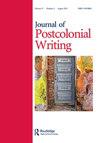Documenting the unarchivable: Minor Detail and the archive of senses
IF 0.4
3区 文学
0 LITERATURE
引用次数: 0
Abstract
ABSTRACTThis article is a close reading of Adania Shibli’s Tafṣīl thānawī (Minor Detail), focusing on the novel’s poetic techniques of narrating Palestinian history. This article shows how, in order to break away from the reliance on perpetrators’ testimonies, Shibli creates a repository of unverifiable, seemingly negligible details that ultimately construct the historical event as a continuous phenomenon that lasts until today. Once accessible via present realities, the authoritative archive is rendered unnecessary. Privileging description over action, Tafṣīl thānawī turns minor, tangible details into indispensable pieces of the historical puzzle. This article illuminates why Tafṣīl thānawī does not simply embody the voice of the colonized, but challenges what we deem worth documenting and inserts into the historical discourse the sights, smells, and sounds of undocumented experiences. As such, Shibli provides an alternative method of documenting the past, one that classifies the unarchivable: sensory experiences and a vanishing landscape.KEYWORDS: Palestinian literaturePalestinian historyAdania Shiblicolonial archivessexual violence in Israel/PalestineTafṣīl thānawī (Minor Detail) Disclosure statementNo potential conflict of interest was reported by the author.Notes1. I am working with the Arabic original. However, all quotations in the article are from Elisabeth Jaquette’s English translation, Minor Detail (Shibli Citation2020).2. I thank the participants of the 2022 seminar of the Martin Buber Society of Fellows of the Hebrew University and the Van Leer Institute Workshop “Is There an Israeli History without Palestinian History?” for their significant contributions to this article.3. For other examples of historiography of Palestinians based on oral testimonies, see, Dina Matar (Citation2010) and Rosemarie M. Esber (Citation2008).4. Nora Parr (Citation2018) convincingly critiques this widespread depiction of trauma narrative.5. Fatima Aamir (Citation2022) and Shir Alon (Citation2019) also compare Hartman’s “Venus” to Shibli’s work.Additional informationNotes on contributorsElla ElbazElla Elbaz is an assistant professor in the Department of Arabic Language and Literature at the University of Haifa. She completed her PhD at Stanford University and has published in The Journal of Arabic Literature and Dibur on Palestinian and Israeli contemporary cultures. Her upcoming book, titled Future Perfect, explores speculative fiction and art from Palestine and Israel.记录不可存档的东西:小细节和感官的存档
摘要本文细读阿达尼娅·施卜力的小说《小细节》Tafṣīl thānawī,重点探讨小说在叙述巴勒斯坦历史方面的诗歌技巧。这篇文章展示了,为了摆脱对肇事者证词的依赖,Shibli如何创建了一个无法验证的、看似微不足道的细节库,最终将历史事件构建为一个持续到今天的连续现象。一旦可以通过现实获得,权威档案就变得没有必要了。Tafṣīl thānawī将描述置于行动之上,将微小的、有形的细节变成了历史拼图中不可或缺的部分。这篇文章阐明了为什么Tafṣīl thānawī不仅体现了被殖民者的声音,而且挑战了我们认为值得记录的东西,并将未记录的经历的景象、气味和声音插入到历史话语中。因此,Shibli提供了另一种记录过去的方法,一种将无法存档的分类:感官体验和消失的景观。关键词:巴勒斯坦文学;巴勒斯坦历史;巴勒斯坦历史;;;;;;;我正在处理阿拉伯语原版。然而,文章中的所有引文都来自Elisabeth Jaquette的英文翻译,Minor Detail (Shibli Citation2020)。我感谢2022年希伯来大学马丁·布伯研究员协会研讨会和凡·里尔研究所研讨会“没有巴勒斯坦历史就有以色列历史吗?”,感谢他们对本文作出的重大贡献。关于基于口述证词的巴勒斯坦人史学的其他例子,见Dina Matar (Citation2010)和Rosemarie M. Esber (Citation2008)。诺拉·帕尔(引文2018)令人信服地批评了这种对创伤叙事的广泛描述。Fatima Aamir (Citation2022)和Shir Alon (Citation2019)也将哈特曼的《维纳斯》与Shibli的作品进行了比较。作者简介:sella elbazz是海法大学阿拉伯语言文学系的助理教授。她在斯坦福大学完成了博士学位,并在《阿拉伯文学杂志》和《Dibur》上发表了关于巴勒斯坦和以色列当代文化的文章。她即将出版的新书《未来完美》(Future Perfect)探讨了巴勒斯坦和以色列的投机小说和艺术。
本文章由计算机程序翻译,如有差异,请以英文原文为准。
求助全文
约1分钟内获得全文
求助全文
来源期刊

Journal of Postcolonial Writing
LITERATURE-
CiteScore
0.80
自引率
0.00%
发文量
73
期刊介绍:
The Journal of Postcolonial Writing is an academic journal devoted to the study of literary and cultural texts produced in various postcolonial locations around the world. It explores the interface between postcolonial writing, postcolonial and related critical theories, and the economic, political and cultural forces that shape contemporary global developments. In addition to criticism focused on literary fiction, drama and poetry, we publish theoretically-informed articles on a variety of genres and media, including film, performance and other cultural practices, which address issues of relevance to postcolonial studies. In particular we seek to promote diasporic voices, as well as creative and critical texts from various national or global margins.
 求助内容:
求助内容: 应助结果提醒方式:
应助结果提醒方式:


